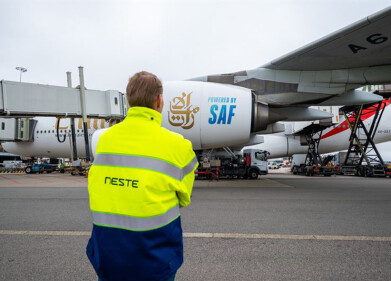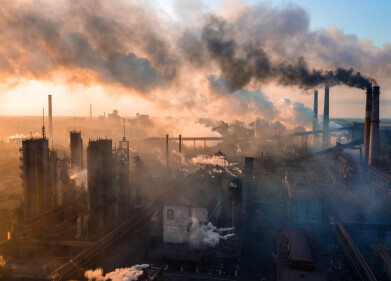Fuel for Thought
How Does the Church Affect the Oil Industry?
May 26 2015
Ask the average person to find a link between the Church of England and the oil industry and the chances are they would likely come up empty handed. However as of late, the connection has been increasingly prevailing as the Church begins to wield its influence in the global fight against climate change.
Recently, the Church of England made a controversial decision to cash in its investments in coal and tar sands. The move received widespread commendation from climate change campaigners who maintain that religious groups do have a huge amount of power when it comes to combating global warming.
Ethics, the environment and the economy
The Church claims that one of the driving forces behind the move is the fact that the poor, the marginalised and the disadvantaged will be hit the hardest by the economic effects of global warming. For this reason, the Church of England felt it has an ethical obligation to sell off a significant chunk of investments from its £9 billion portfolio.
Just days before, the Vatican was also exercising its influence in the fight against climate change. The centre of the Roman Catholic Church urged its followers to wise up on the risks, ahead of an encyclical from the pope. Across the globe, a multitude of other religious groups and denominations are showing their support for the fight against climate change and selling off oil, gas and coal investments. Methodists, Quakers and United Reformed Presbyterians are just some of the faith groups currently flexing their influence.
Bill McKibben, an environmentalist and divestment campaigner said: “The financial case for action is clear but churches are, or should be, specialists in identifying that other kind of risk, where human beings don’t pay enough attention to the poorest and most vulnerable among us. When the Church of England acts, or the pope speaks, it’s a potent reminder.”
The ever present role of the church
Christine Allen, Christian Aid’s director of policy and public affairs maintains that churches have always played an important move in global social movements. “In all the great social movements in history, a part of the church has always been at the forefront, such as Archbishop Desmond Tutu with apartheid, Baptist minister Martin Luther King with civil rights in the US, and William Wilberforce with slavery,” she argues. “But there has always been a bit of the church at the back too – the church is broad. It takes a while to get to agreement, but when that happens things move very fast. We really are at that tipping point now.”
Eco-warriors or half-hearted effort?
While the Church of England has taken steps towards combating climate change, critics have highlighted the fact that they aren’t 100% committed to the cause. Yes, they sold off £12 million of coal and tar sands investments but they kept around £100 million in oil.
So will the Church of England and other faith groups be successful in influencing social views on climate change and resource investment? The answer is an indefinite yes, however the scope of the influence will depend on just how dedicated the groups actually are to the cause.
If you’d like to know more about the UK’s fight against global warming, read: Can the UK Become Energy Self-Sufficient?
Digital Edition
PIN 25.1 Feb/March
March 2024
In This Edition Safety - The technology behind the ION Science Tiger XT - Safety with ammonia and LOHCs as hydrogen carriers Analytical Instrumentation - Discussion on new tribology te...
View all digital editions
Events
Apr 28 2024 Montreal, Quebec, Canada
Apr 30 2024 Birmingham, UK
May 03 2024 Seoul, South Korea
May 05 2024 Seville, Spain
May 06 2024 Riyadh, Saudi Arabia


















